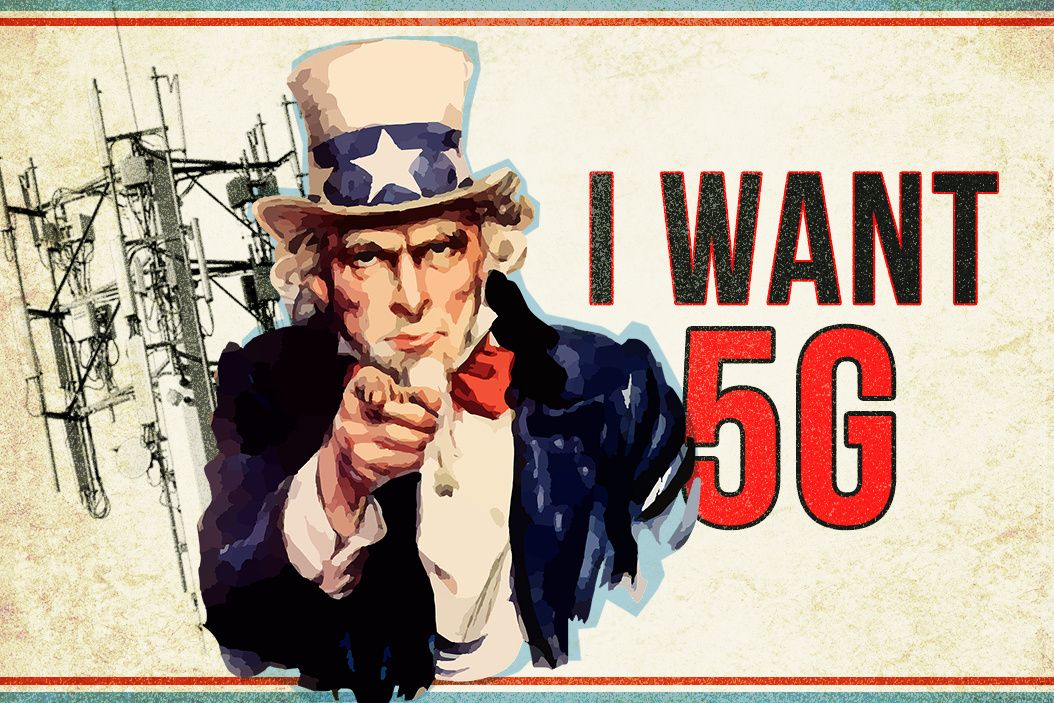February 11, 2020
William Barr, the US attorney general, caused a stir last week when he suggested that the US government should consider buying Ericsson and Nokia, two European technology companies that are competing with the Chinese tech giant Huawei.
Ericsson, Nokia, and Huawei are all competing to build the ultra-fast 5G networks that are supposed to power everything from your Netflix, to your self-driving car, to futuristic factories, to entire "smart" cities.
The US has recently been pressuring countries not to use Huawei equipment, because of fears that Beijing could use the company to spy or disrupt critical infrastructure (Huawei denies it has ever done this). And while not all of the US' allies have accepted this logic, there are concerns that in the long run, Huawei, which enjoys huge government support, could drive its competitors out of business, leaving everyone in the world dependent on China for critical mobile network gear.
So…enter Uncle Sam to change the dynamic by boosting some of Huawei's competitors? Here are arguments for and against what would be a dramatic US government intervention in the global tech sector:
The argument for: 5G is too strategic a technology to be left entirely to market forces – particularly if that means relying on China. So if there are no major US suppliers of telecommunications networking gear left, and it's unclear if European tech firms can compete in the long run against cash-rich, state-backed Huawei, it makes sense for the US to put its "large market and financial muscle" behind the European firms. The US acting as a private equity investor in tech would be a dramatic step, but there is some precedent here: After all, Silicon Valley as we know it, was nurtured by Cold War defense spending. If the US and its closest allies are in a new tech-centered geopolitical struggle with China, creating their own national – or transnational – technology champions is a logical move.
The argument against: For one thing, it's very hard to see European regulators approving a plan like this. One reason is that the EU – which is already wary of being caught between the US and China – wants to nurture its own tech champions, rather than farm them out to Washington. Another is that a move like this could provoke a sharp reaction from Chinese authorities, who might restrict European access to Chinese markets in response. There's also a philosophical argument: government interference in private business tends to create waste and could hurt innovation in the long run. The story of Silicon Valley was of seed capital and preferred suppliers, not the government making massive direct equity investments in companies. Boosting investment in basic research, education, and infrastructure would be a much better use of taxpayer dollars.
Some other members of the Trump administration quickly poured cold water on Barr's idea. There are other ways besides taking a direct stake that the US could get involved – it could try to offer tax breaks to private buyers, for example. But the fact that a top US official (a Republican!) is even talking about it shows that geopolitics is pushing the global tech sector into uncharted territory.
More For You
French President Emmanuel Macron, German Chancellor Friedrich Merz, Ukrainian President Volodymyr Zelenskiy, U.S. Special Envoy Steve Witkoff and businessman Jared Kushner, along with NATO Secretary-General Mark Rutte and otherEuropean leaders, pose for a group photo at the Chancellery in Berlin, Germany, December 15, 2025.
Kay Nietfeld/Pool via REUTERS
The European Union just pulled off something that, a year ago, seemed politically impossible: it froze $247 billion in Russian central bank assets indefinitely, stripping the Kremlin of one of its most reliable pressure points.
Most Popular
Sponsored posts
Consumers are spending–just not evenly
What's Good Wednesdays
What’s Good Wednesdays™, December 17, 2025 – holiday movie edition
Walmart’s $350 billion commitment to American manufacturing means two-thirds of the products we buy come straight from our backyard to yours. From New Jersey hot sauce to grills made in Tennessee, Walmart is stocking the shelves with products rooted in local communities. The impact? Over 750,000 American jobs - putting more people to work and keeping communities strong. Learn more here.
Of all the threats to the world, what are the top 10 most urgent global risks for 2026? On Monday, January 5, at 12 pm ET, join us for a livestream discussion with Ian Bremmer and global experts to discuss the Top Risks of 2025 report from Eurasia Group. This report will mark twenty years of Ian Bremmer’s annual forecast of the political risks that are most likely to play out over the year. Event link: gzeromedia.com/toprisks
In this episode of Tools and Weapons, Microsoft Vice Chair and President Brad Smith sits down with Ed Policy, President and CEO of the Green Bay Packers, to discuss how purpose-driven leadership and innovation are shaping the future of one of the world’s most iconic sports franchises. Ed shares how technology and community-focused initiatives, from Titletown Tech to health and safety innovations on the field, are transforming not just the game of football, but the economy and culture of Green Bay itself. He explains how combining strategic vision with investment in local startups is keeping talent in the Midwest and creating opportunities that extend far beyond Lambeau Field.
Subscribe and find new episodes monthly, wherever you listen to podcasts.
© 2025 GZERO Media. All Rights Reserved | A Eurasia Group media company.
